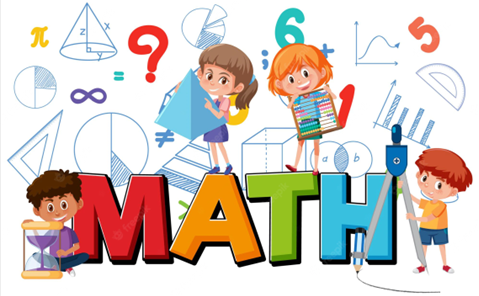As a parent, it's important to support and encourage your child's interests and passions, including their interest in math. Here are six ways to help your child develop their math skills:
- Encourage a growth mindset: When children believe that they can improve their math skills through hard work and effort, they are more likely to persevere in the face of challenges. Encourage your child to approach math problems with a "I can do it" attitude and to view mistakes as opportunities to learn.
- Provide opportunities for hands-on learning: Children learn best through hands-on experiences. Encourage your child to explore and experiment with math concepts through manipulatives, such as blocks, number lines, or pattern blocks.
- Make math fun: Children are more likely to be engaged in math when it is presented in a fun and interactive way. Try incorporating math into games and activities, such as cooking (measurements), board games (counting, probability) or sports (timing, scoring).
- Encourage daily practice: Math skills are developed over time through consistent practice. Encourage your child to practice math skills daily, whether it's through homework, online games, or flashcards.
- Provide real-world connections: Children are more likely to understand and retain math concepts when they see how they apply to the real world. Provide opportunities for your child to use math in real-world situations, such as budgeting for a family trip, or measuring the ingredients for a recipe.
- Find a math role model: Children often look up to their parents, teachers, and other adults as role models. Encourage your child to seek out a math role model, whether it's a teacher, a family member, or a famous mathematician. This will help them to see the value and relevance of math in their own lives and in the world around them.
For example, if your child is interested in geometry and spatial awareness, you could encourage them to play with building blocks and puzzles, and then progress to more complex shapes and structures. You could also encourage them to play video games that require spatial awareness and strategy, such as Minecraft. Additionally, you could take them on field trips to architectural sites or museums that showcase geometric shapes and patterns.
In conclusion, by encouraging a growth mindset, providing opportunities for hands-on learning, making math fun, encouraging daily practice, providing real-world connections, and finding a math role model, parents can help their child to develop their math skills and to enjoy learning math. With the right support and encouragement, children can develop a deep understanding of math concepts, and gain the skills and confidence they need to succeed in math and in life. Remember to always be patient and to celebrate small successes along the way.


